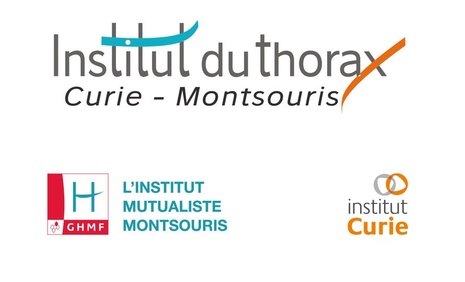
Three questions... for Dr Catherine Daniel
What makes lung cancer so deadly?
Five-year survival is lower than 15%, due mainly to late diagnosis, at a locally advanced or metastatic stage. The symptoms are not specific and often appear at an advanced stage.
Has there been any recent progress?
Treatment of metastatic non-small cell lung cancers has changed considerably during the past five years, with a trend towards growing personalization of treatments.
The first step in this treatment personalization was based on histology, with subdivision between epidermoid carcinoma and non-epidermoid carcinoma.
The most spectacular progress comes from the identification of DNA alterations which offer treatments that specifically inhibit these molecular anomalies. However, this therapeutic approach today involves only a minority of patients, often without high tobacco exposure.
Once the histological diagnosis has been made, and in the case of non-epidermoid non-small cell lung cancer, the molecular profile of the tumor will be obtained on one of the molecular biology platforms certified by the INCa. Institut Curie has this type of platform. For all locally advanced or metastatic non-epidermoid non-small cell lung cancer, tumor material is sent by the pathologist to the molecular genetics platform to search for a mutation in the EGFR, KRAS, BRAF and HER2 genes, and to search for a rearrangement in the ALK gene. If a molecular anomaly is identified, the patient will be offered a treatment that targets this molecular anomaly. Institut Curie takes part in clinical trials that aim to search for other molecular anomalies and test new treatments that target these molecular anomalies.
Are others personalized treatments still being studied?
Progress is being achieved from new strategies based on improved use of existing therapeutic methods, particularly in terms of therapeutic sequences. A new generation of targeted treatments will also be developed, and the new therapeutic methods to be targeted or modulated will be revealed with, for example, the emergence of immunotherapy, which aims to assist the body’s defense system to fight cancer.


